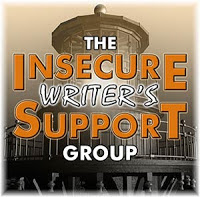 |
| Crawling along in the Story Genius method for my college memoir. |
A
story is one external problem that grows, escalates, and complicates from
beginning to end, Lisa Cron says in our Story Genius class. Jennie Nash concurs. And, the ladies tell us, the writer needs to develop one
overarching ticking clock with real life consequences.
Right!
It sounds easy, doesn’t it? Try
it in memoir.
So I started with my misbelief
that I shouldn’t attempt college because I’m inadequate to those seeking a college
education. This was instilled in me when I was growing up and struggled in
school. This belief kept me out of academia and away from failure, humiliation
or displaying incompetence. Or so my father told me. I chose the successful
path of secretary with a regular paycheck and married and became a mother like my
mom, sisters, and friends.
I was safe in my cozy box of
motherhood, safe from any fear of failure until my disabled daughter signed up
for high school classes. Then I needed to choose whether to be a failure at
guiding my children or disabled child or a failure at attempting college.
The ticking clock begins as I am
forced by a comment made from a high school guidance counselor, an
educated person respected in society, to either re-teach my daughter as best I
could, the material needed to pass high school by educating myself first
through college classes, or condemn her to only special education classes in
high school.
So you may ask why I was so
afraid of failure in college.
Because, in my mind, if I fail at
my attempt to obtain a college degree, I have wasted the time I could have
spent with the family, trying to achieve a goal that was not possible for me. My
father would be right. I am not college material.
But my family is everything to
me. If I failed college, I would have wasted my family’s time, which is more
precious to me. It’s ok to waste your own time but not someone else’s,
especially when you love them.
So what do you think of my memoir
problem and ticking clock? Any comments you offer are greatly appreciated.







